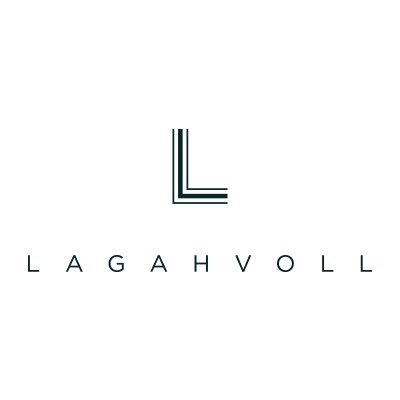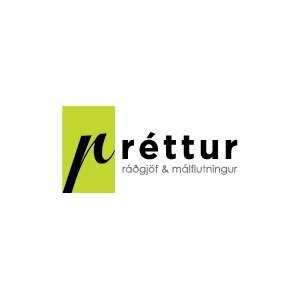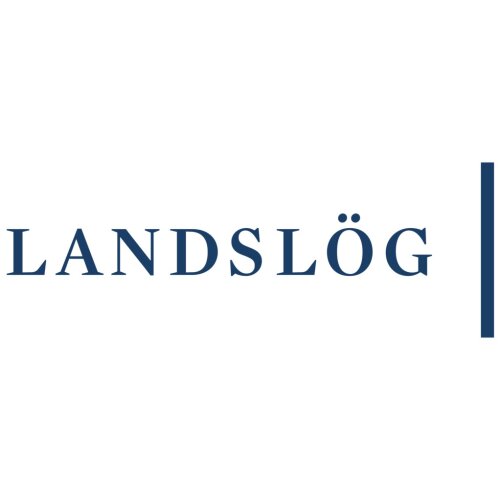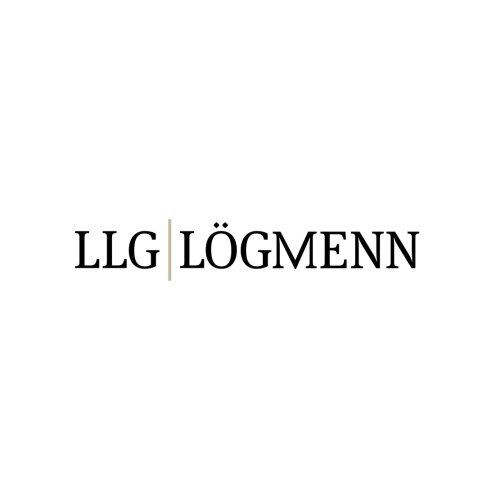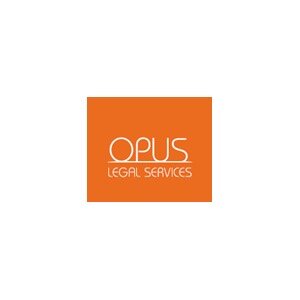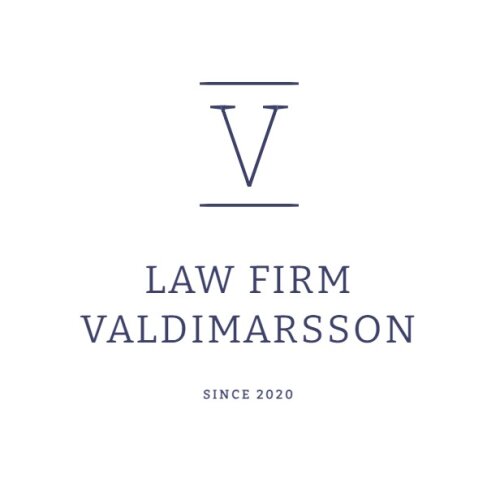Best Renewable & Alternative Energy Lawyers in Iceland
Share your needs with us, get contacted by law firms.
Free. Takes 2 min.
Or refine your search by selecting a city:
List of the best lawyers in Iceland
About Renewable & Alternative Energy Law in Iceland
Iceland is considered a global leader in renewable and alternative energy due to its unique natural resources. Nearly 100 percent of the country’s electricity is generated from renewable sources, primarily geothermal and hydropower. Renewable & Alternative Energy Law in Iceland is a specialized area of legal practice that covers the development, production, distribution, regulation, and environmental impact of energy projects using resources like geothermal power, hydroelectric power, wind energy, and solar energy. These laws address how energy resources can be accessed, managed, and utilized sustainably while protecting ecological and community interests.
Why You May Need a Lawyer
Legal complexities can arise in the renewable and alternative energy sector due to the intersection of technology, property rights, environmental regulations, and government permits. You may need a lawyer if you are:
- Developing or investing in a renewable energy project, such as geothermal or hydropower plants.
- Negotiating land or resource use agreements.
- Dealing with government permits, licenses, or compliance with environmental standards.
- Facing disputes over land use, water rights, or energy contracts.
- Seeking to understand your rights when your land or business is impacted by energy projects.
- Handling cross-border energy trading or joint ventures.
- Protecting intellectual property related to new renewable energy technologies.
- Dealing with financing or insurance for energy projects.
Local Laws Overview
Several legal frameworks govern renewable and alternative energy in Iceland:
- Energy Laws and Regulations - Iceland’s 2003 Electricity Act and the 2008 Act on Renewable Energy Production, along with several other sectoral laws, regulate energy production, distribution, and sales.
- Natural Resource Ownership - Most natural resources, such as geothermal energy and water for hydropower, are owned by the state, municipalities, or private parties, but always subject to public interest constraints.
- Licensing and Permits - Starting a renewable energy project often requires multiple government permits and environmental assessments to ensure safety and sustainability. The National Energy Authority and the Icelandic Environment Agency handle these processes.
- Environmental Protection - Icelandic law strongly protects the environment with rules for assessing potential ecological impacts, managing waste, and monitoring emissions.
- Foreign Investment - While foreign investment is encouraged, certain restrictions exist on ownership and rights to natural resources by non-residents.
- Grid Access and Energy Sales - Laws also cover the terms and fairness of accessing the national power grid and the sale of energy, prioritizing transparency and competition.
Frequently Asked Questions
What types of renewable energy are most common in Iceland?
Geothermal energy and hydropower provide the vast majority of Iceland’s electricity and heating. Wind and solar energy are also present but account for a much smaller share.
Do I need a permit to start a renewable energy project in Iceland?
Yes, most projects require permits from government agencies. This includes environmental assessments, resource extraction rights, and sometimes planning permissions from local municipalities.
Who owns the natural resources used for renewable energy?
Natural resources in Iceland can be owned by the state, local municipalities, or private entities. However, their use is subject to national regulations that prioritize public interest and sustainability.
How are environmental concerns addressed?
Environmental protection is a key part of Iceland’s energy law. All significant energy projects must undergo environmental impact assessments and comply with strict monitoring regulations.
Are there restrictions on foreign investment in Icelandic energy projects?
Yes, foreign investors can face restrictions, especially concerning ownership or usage rights of natural resources. Permission from authorities is required, and investments are screened for compliance with Icelandic law.
What legal steps are needed to connect a renewable energy project to the national grid?
You must apply for grid access from the local energy distributor. This involves meeting technical standards, negotiating a connection agreement, and sometimes demonstrating compliance with competition and transparency regulations.
Can individuals or small businesses produce their own renewable energy?
Yes, small-scale energy production is encouraged, especially for geothermal heating or small hydropower. However, permits, reporting, and compliance with safety rules are still necessary.
What happens if a project impacts my property or business?
If your land or business is likely to be affected by an energy project, you may have rights to consultation, compensation, or to challenge the project legally. Timely legal advice is key.
How are energy prices regulated in Iceland?
Energy prices are monitored for fairness by national regulators. Disputes over pricing can be resolved through regulatory appeals or, in some cases, the courts.
What penalties exist for breaching renewable energy laws?
Penalties can include fines, suspension of permits, or even criminal charges in severe cases such as illegal resource extraction or serious environmental harm.
Additional Resources
If you need more information or official guidance, these organizations and resources are highly valuable:
- National Energy Authority of Iceland (Orkustofnun) - The government authority responsible for energy regulation and licensing.
- Icelandic Environment Agency (Umhverfisstofnun) - For environmental permits and impact assessments.
- Ministry of the Environment, Energy and Climate - Responsible for policy and legislation in energy and climate matters.
- Federation of Icelandic Industries (SI) - Provides support and networking in the energy sector.
- Arctic Renewable Energy Center - Offers research and resources on Arctic and Nordic energy issues.
- Chamber of Commerce Iceland - For business and investment advice, including in the energy sector.
Next Steps
If you are considering a project, investment, or dispute related to renewable or alternative energy in Iceland, it is wise to seek legal assistance as early as possible. A specialist lawyer can help you navigate permits, protect your interests, and avoid costly mistakes. To get started:
- Define your goals and gather relevant documents or plans.
- Reach out to a lawyer experienced in Icelandic energy law.
- Prepare a list of questions or concerns to discuss during your consultation.
- Consult available official resources and guidance from the authorities listed above.
- Stay informed about updates in local laws and policies that might impact your project or rights.
With the right preparation and legal advice, engaging with Iceland’s renewable and alternative energy sector can be a rewarding and sustainable endeavor.
Lawzana helps you find the best lawyers and law firms in Iceland through a curated and pre-screened list of qualified legal professionals. Our platform offers rankings and detailed profiles of attorneys and law firms, allowing you to compare based on practice areas, including Renewable & Alternative Energy, experience, and client feedback.
Each profile includes a description of the firm's areas of practice, client reviews, team members and partners, year of establishment, spoken languages, office locations, contact information, social media presence, and any published articles or resources. Most firms on our platform speak English and are experienced in both local and international legal matters.
Get a quote from top-rated law firms in Iceland — quickly, securely, and without unnecessary hassle.
Disclaimer:
The information provided on this page is for general informational purposes only and does not constitute legal advice. While we strive to ensure the accuracy and relevance of the content, legal information may change over time, and interpretations of the law can vary. You should always consult with a qualified legal professional for advice specific to your situation.
We disclaim all liability for actions taken or not taken based on the content of this page. If you believe any information is incorrect or outdated, please contact us, and we will review and update it where appropriate.
Browse renewable & alternative energy law firms by city in Iceland
Refine your search by selecting a city.



